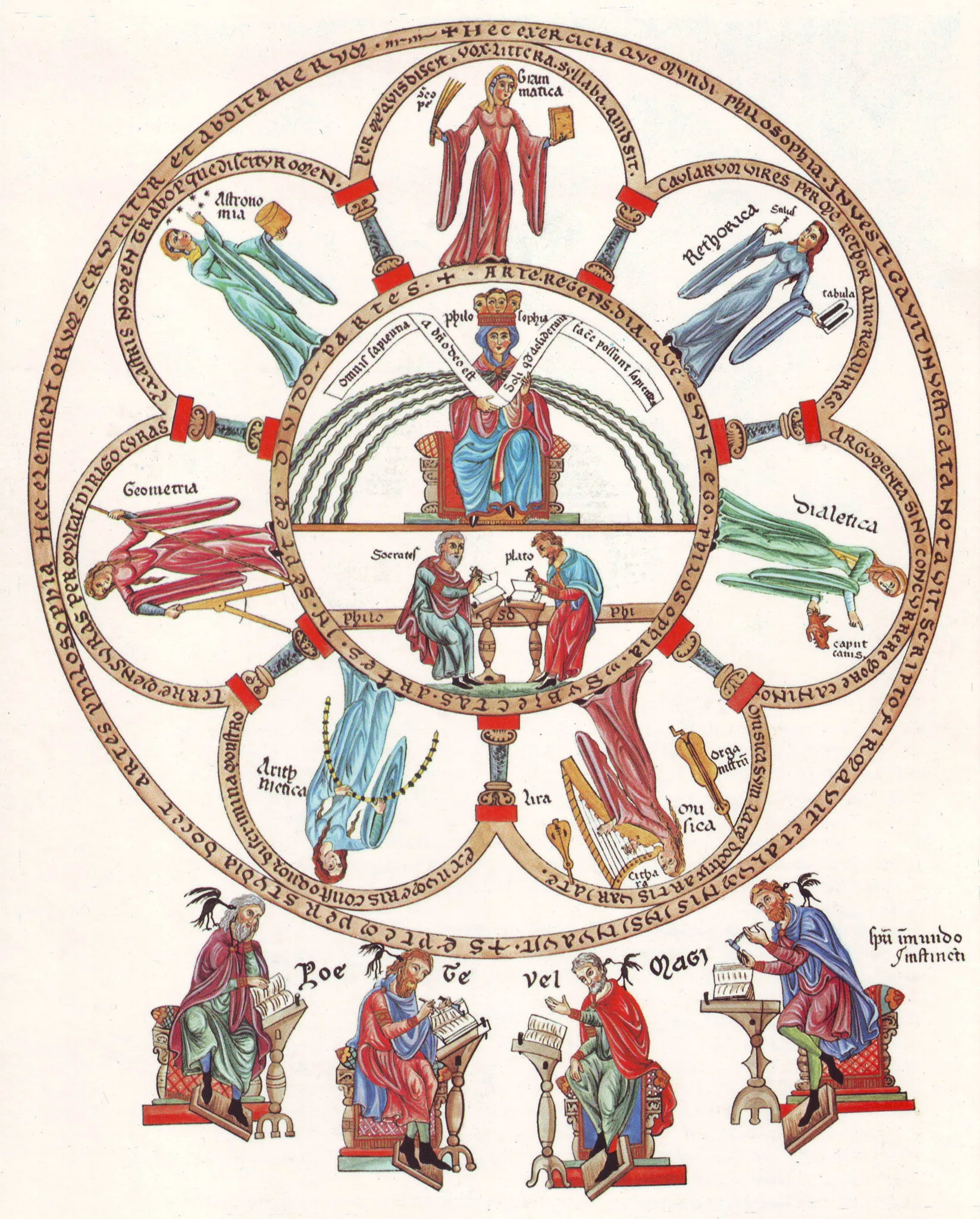Liberal Arts Education
What Is a Liberal Arts Education?
A liberal arts education is the cornerstone of the Western academic tradition, reaching back to the first universities of Europe. It is a broad and integrated way of learning that seeks not only to expand knowledge, but to form the whole person — mind, heart, and character.
Unlike narrow specialisations that train for a single profession, the liberal arts cultivate wisdom, curiosity, and the ability to see connections across history, literature, philosophy, theology, and beyond. As Saint John Henry Newman observed in The Idea of a University, a true liberal education develops the mind, shapes character, and fosters wisdom.
History of the liberal arts
The liberal arts tradition stretches back over two thousand years, beginning in the classical world of Greece and Rome, where education was designed to form free citizens able to think, speak, and live wisely. At the centre of this training was the trivium – grammar, logic, and rhetoric – which taught students to master language, reason clearly, and communicate persuasively.
In the Middle Ages, this framework was taken up and developed by the first Christian universities. To the trivium they added the quadrivium – arithmetic, geometry, astronomy, and music. These seven disciplines were not taught in isolation but as complementary paths to truth, preparing students for advanced study in philosophy and theology. In this way, the trivium and quadrivium formed the essential groundwork for higher learning.
This structure created a natural progression: the trivium and quadrivium informed the education of younger students (what we might now see as primary and secondary schooling), while the liberal arts at the university level brought that formation to maturity. For a fuller exploration of this progression, see our blog post: Classical Education vs Liberal Arts: What Parents Should Know.
Over time, however, higher education in the West shifted. As universities became increasingly specialised and vocational, the unifying vision of the liberal arts was often set aside. Today, tertiary education is more often associated with technical training for particular careers rather than the broad and formative study it was originally intended to be.
This is why the renewal of the liberal arts matters so much. A liberal arts education at university represents a return to the roots of higher education itself – broad, integrated, ordered towards truth, and profoundly human.
Liberal Arts Today
Though centuries old, the liberal arts are more relevant today than ever. The aim remains the same: to form articulate, thoughtful, and virtuous people.
At Campion College, this takes the shape of:
- Reading the great works of Western civilisation, from Homer and Augustine to Shakespeare and Austen.
- Engaging in small, discussion-based classes where every student is encouraged to question, dialogue, and discover.
- An integrated curriculum where history, literature, philosophy, and theology are studied together, revealing how ideas connect across time.
- The integration of faith and reason, continuing the tradition of the first universities where truth was pursued in all its dimensions.
This is education at its richest — not just accumulating information, but learning to seek wisdom and live well.
Why the Liberal Arts Matter
A liberal arts education is not only for a career, but for life. It forms people who can:
- Think clearly and deeply, asking meaningful questions and seeking truth.
- Communicate with confidence, in speech and writing, across any context.
- Grow in self-understanding and integrity, becoming men and women of character.
- Adapt to future opportunities, with a foundation broad enough to support postgraduate study, meaningful careers, and lifelong learning.
Employers and universities consistently recognise the value of liberal arts graduates – but the deepest value of this education lies beyond statistics. It produces individuals capable of wisdom, service, and human flourishing in every sphere of life.
Liberal Arts at Campion College
Campion College is proud to be Australia’s first tertiary liberal arts college. Our programs carry forward this great tradition in the Australian context:
- The Bachelor of Arts in the Liberal Arts – a three-year degree that journeys through the history, literature, philosophy, and theology of the West.
- The Diploma of Liberal Arts – the first year of the bachelor program, offered as an early-exit pathway.
These courses and the unique study environment on offer at Campion College provide a formative education that integrates faith and reason, cultivates wisdom, and prepare students for a lifetime of learning and flourishing.

